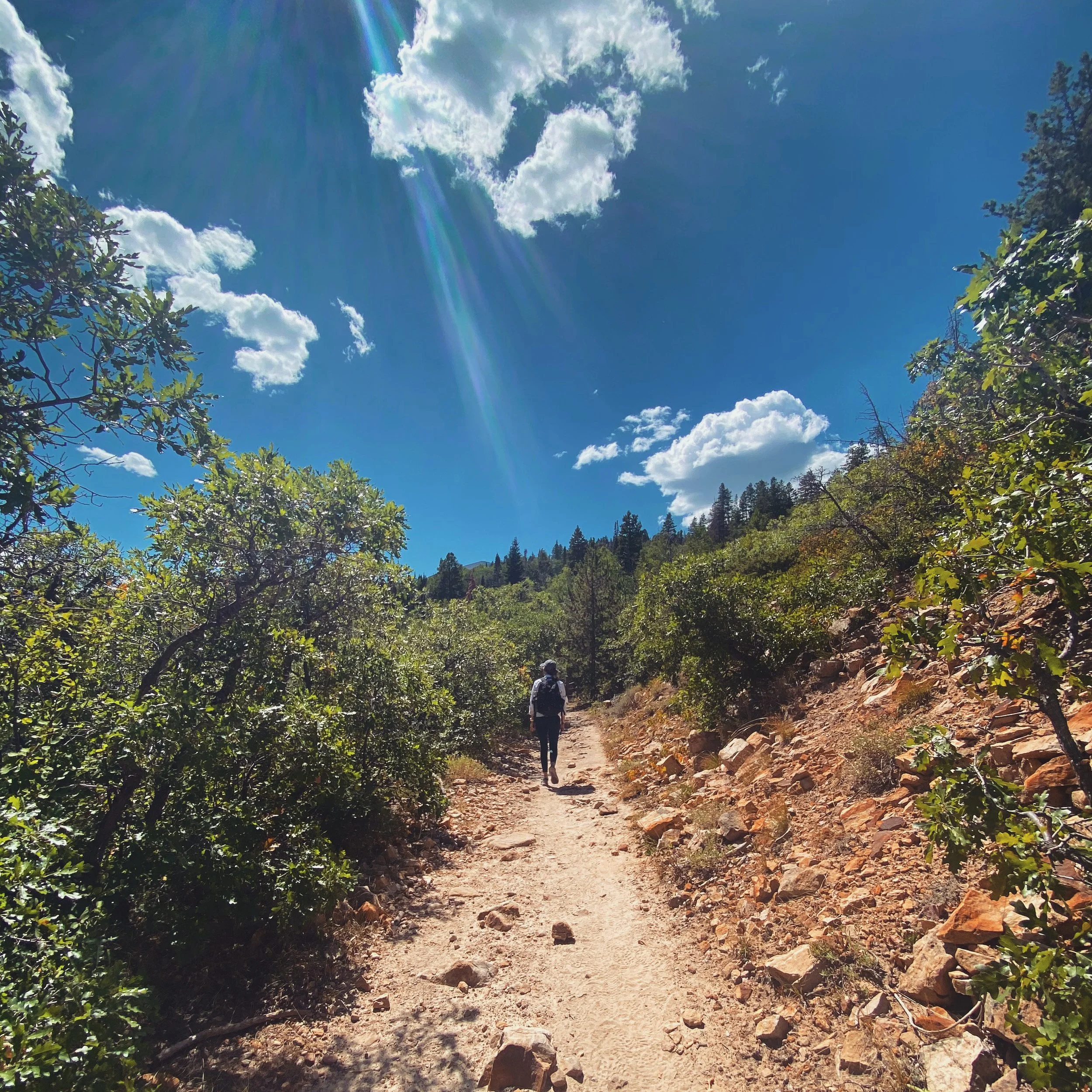It’d Be Easy: The Paradox of Choosing a Simpler Life
“Ah, the good old days.”
“Things were simpler then.”
“Youth is wasted on the young.”
We often, as a culture, talk about simple living nostalgically as we reflect like old farts on our spontaneous and free-spirited youth.
Or, we talk about simplicity like it’s evaded us, as if we chose right instead of left back at that fork in the road and, oh well, that path is gone to us forever.
We complain-brag about how busy we are or even—and this is a bogglingly socially acceptable thing to do—point out the ways our friends and acquaintances are less busy than we are. “Just wait till you have kids” is really not different from “Honey, when you’re older, you’ll understand.”
We both idealize and look down upon people who choose to opt out of the right path. (I hope that vague image of a teenager in the early 2000s is co-narrating in your mind, “Jealous, much?”)
And unlike the previous scenario in which I’m the blissful childless recipient of comparison, I’m a guilty member of the we who’s felt threatened by the courage of those taking the path less taken.
[Insert cheesy and obviously symbolic photo of Paige hiking on a trial]
Judgmental Spectator
A few years ago, my friend gave a talk at a local community center about a solo trek he did, in which he, without a map, circumnavigated a mountain range. On this trip, he packed as lightly as possible: just a bivvy (a super thin sack) instead of a sleeping bag, no tent, a jacket but no second set of clothing—that kind of thing. He didn’t bring a camera, but had photos from other times he’d ventured through these areas, so shared those in his slideshow as he talked about his journey.
He told us how he scoped out a place to propose to his now-wife, my best friend. He described how the relationship he’d built with this region throughout his lifetime helped him navigate, how he’d find vantage points to gauge the weather and plan his route from one peak to the next.
He spoke, then, of the decisions he’s made that enabled this kind of adventure, and all the adventures leading up to it. It’d be easy, he said, to take a job in the city.
But then he wouldn’t be here, or have the time and space to get outside, be in nature.
This is the part where I, a spectator in the small audience, roll my eyes. It’s hard, actually, to work full time, not easy. It’s easy to not get a big boy job if you can live rent-free in a makeshift apartment owned by your parents.
Jealous, much?
We celebrated his talk with BBQ, but that one phrase he said stuck with me, and over the years it would return in my mind regularly. It’d be easy to get a job, rent a house until you could buy one, get a mortgage, fill your house with stuff...
It’d be easy because there wouldn’t be people like me quietly discounting your act of simplicity.
Because here’s the thing— keeping life simple takes dedication, self-awareness, self-assuredness, focus.
You say no to stuff, make do with less, build the muscle to be unfazed by condescending comments about your lifestyle. You decline the job offer, pursue a different one. You stay diligent against messages of consumerism, stay guarded against the Instagram ads badgering you about all the stuff you need to buy in order to be a good mother and a good wife.
You think about how you’ll prepare your kid to deal with learning that other kids wake up to piles of presents every year from an unknown figure and despite all the raised eyebrows that come from other adults you’ll stay determined to think differently—and teach your child to think differently—about tradition and giving and receiving and love.
Simplicity is not something that happens to some lucky people. It has to do with privilege, but hot take— perhaps not in the ways the Royal We might think. It’s not 1:1. It shows up uniquely for all those who pursue it or discover it.
It is an act, a practice, and for many, a string of conscious choices.
Comment for the community: What’s one “easy” thing you’ve chosen not to do—because you knew what mattered more?

